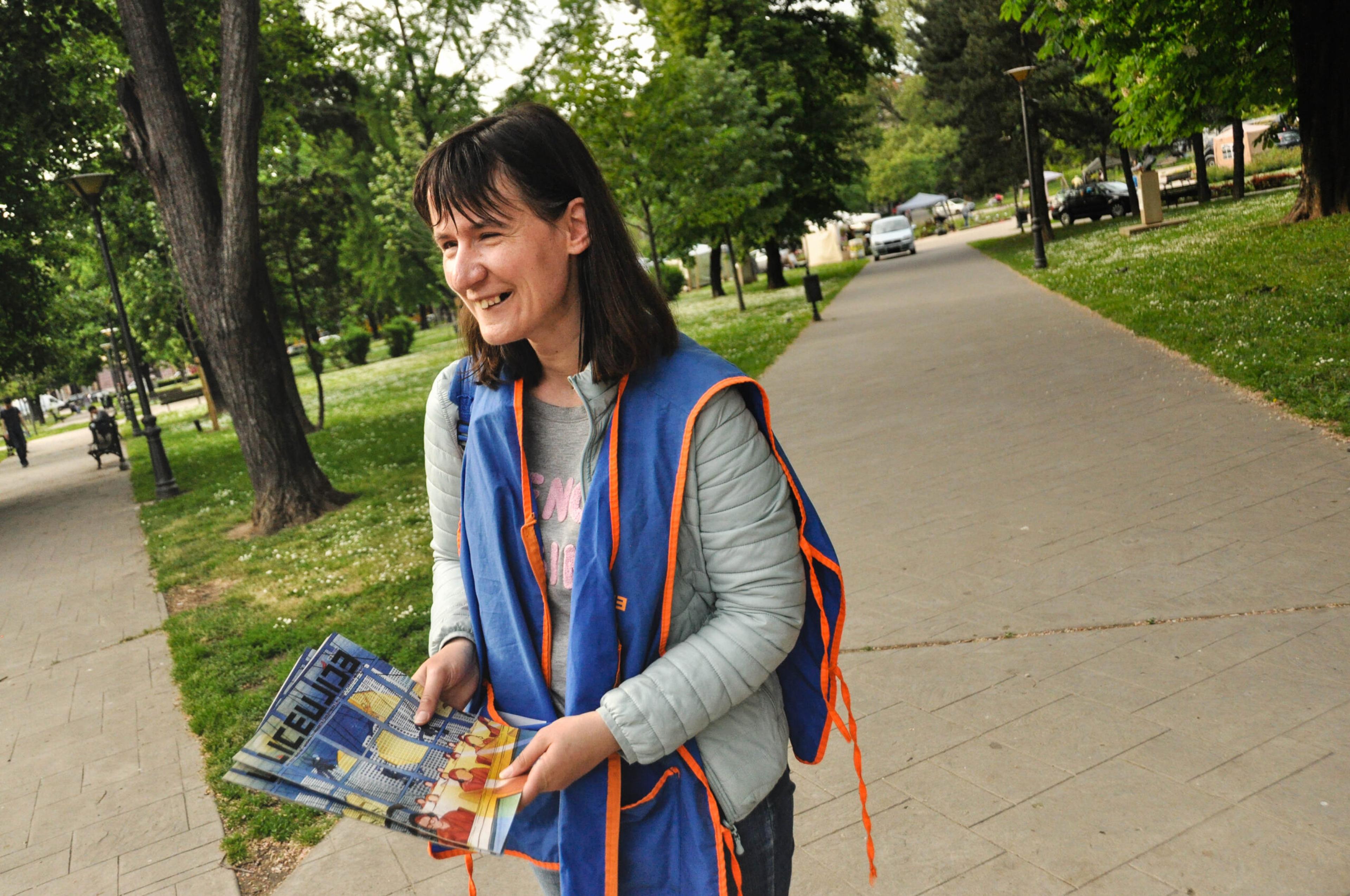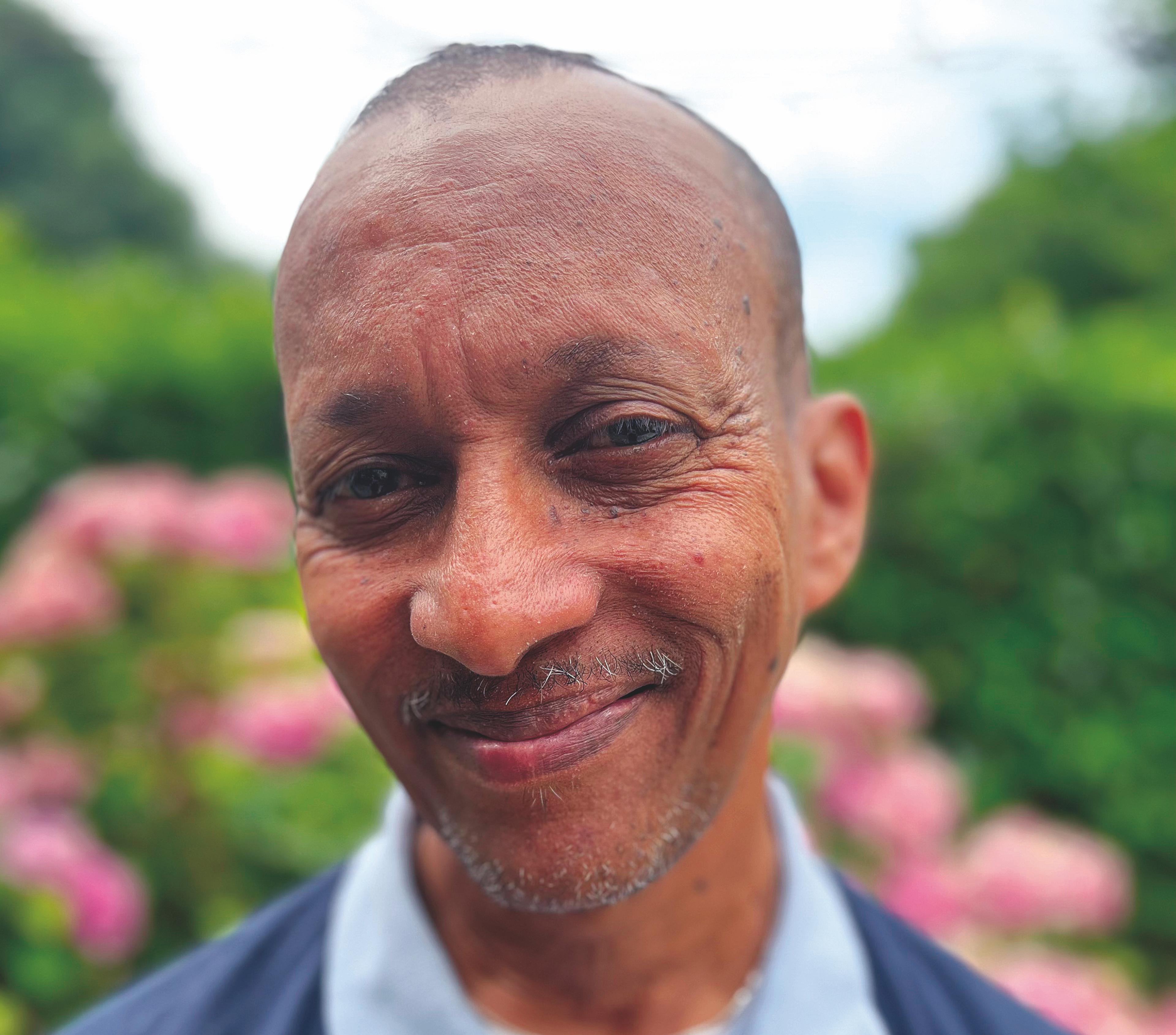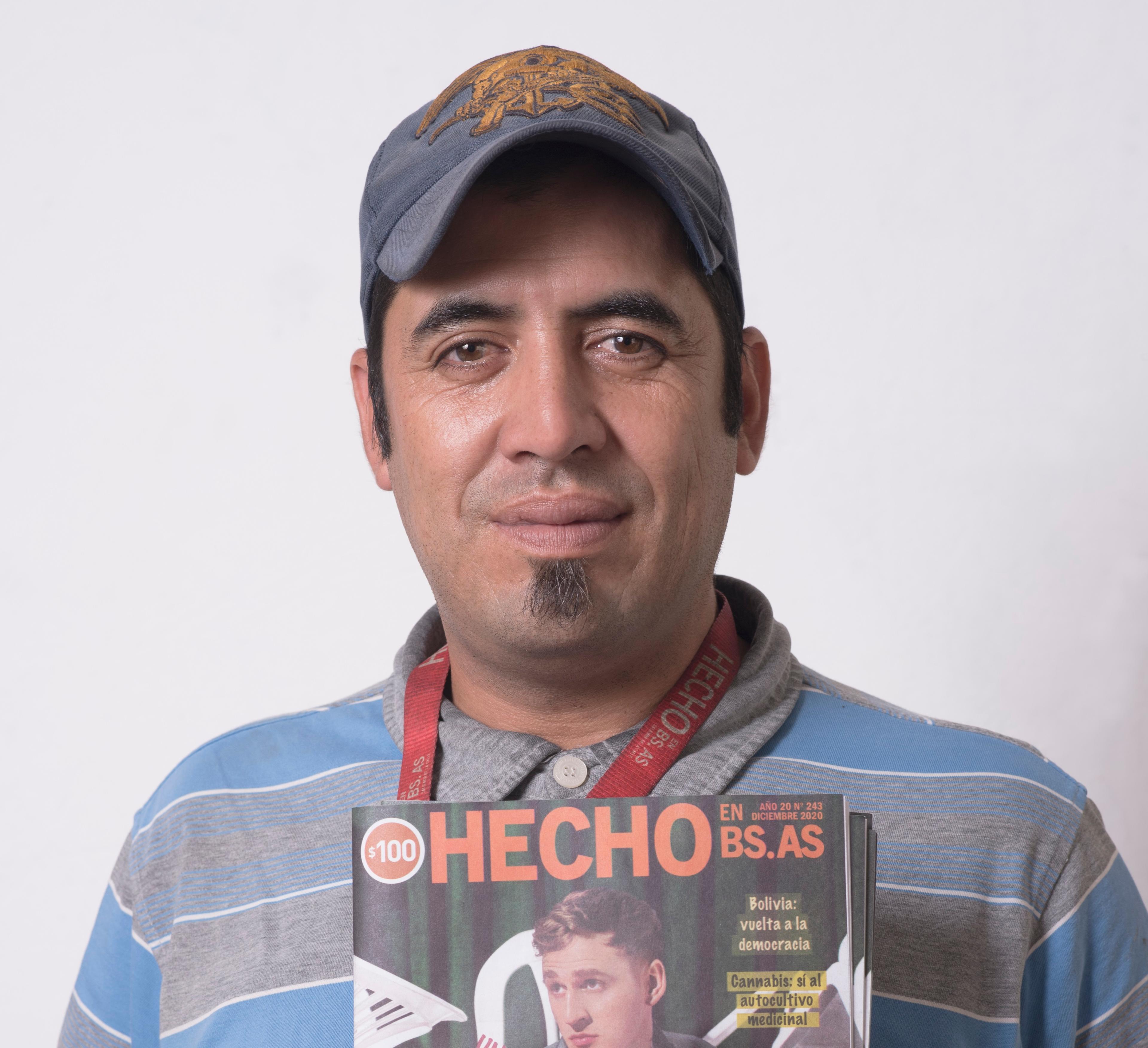Street paper vendor Mr Ueda: “I found my ‘temple’ – The Big Issue Japan. It felt like my reason to live again”
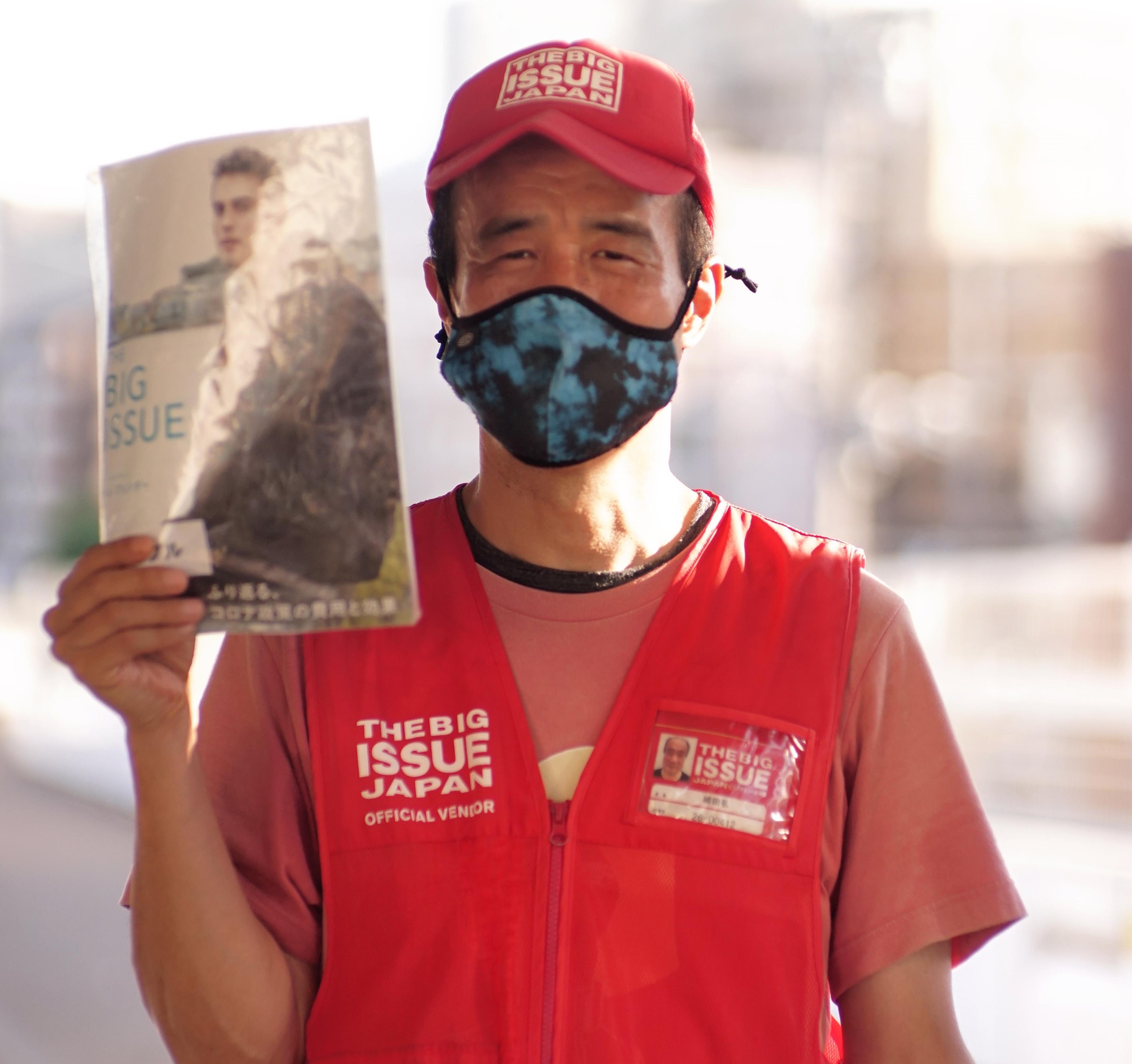
Big Issue Japan vendor Mr. Ueda. Credit: Yoshihiro Kinoshita
By Kazuhiro Hieda
Translated from Japanese by Haruna Suzuki
- Vendor stories
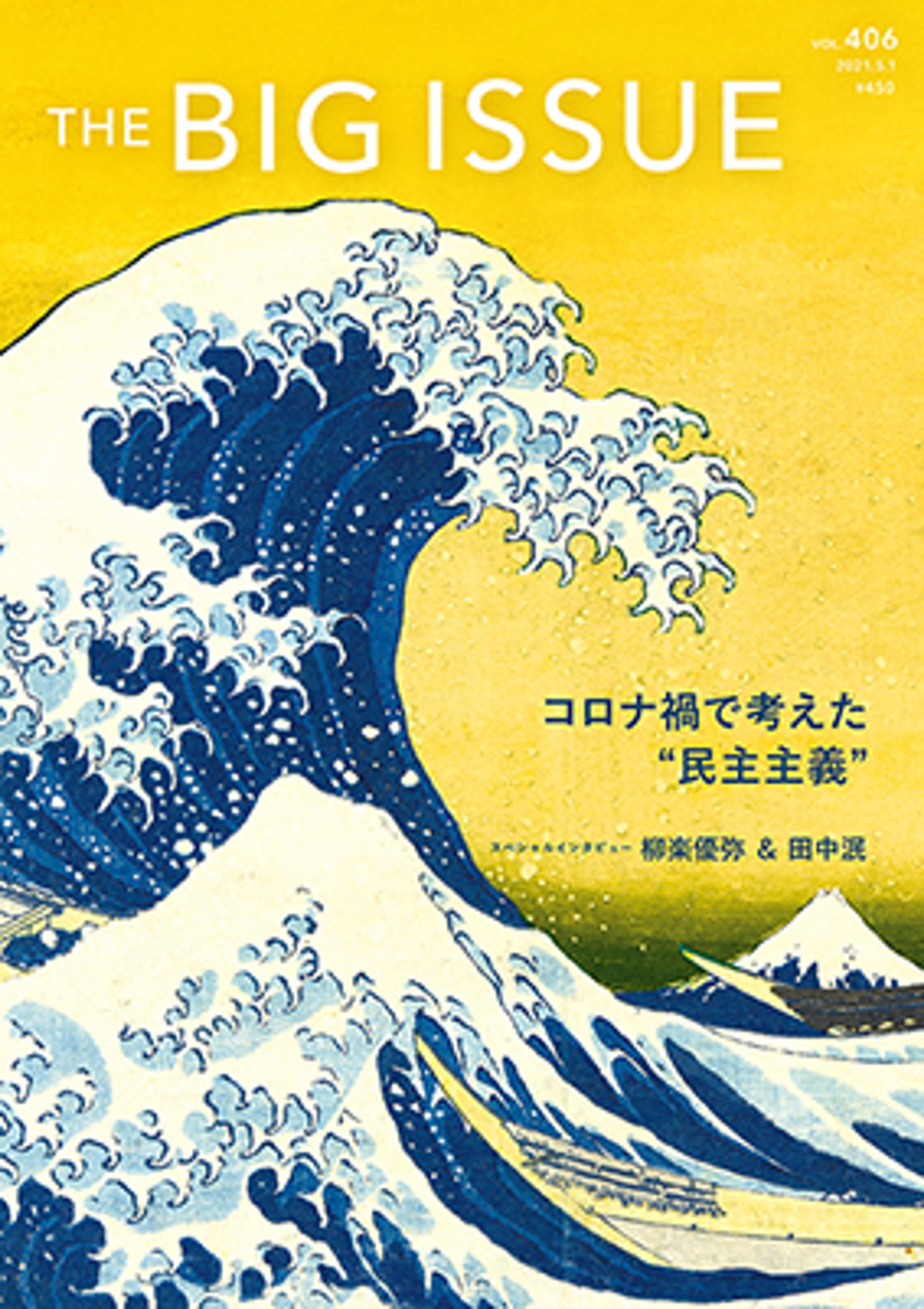
Mr Ueda started selling The Big Issue Japan at the age of 54 after feeling the sudden deterioration of his body and quitting his job as a system engineer. He says he finds it mind-boggling that, just by standing in front of Osaka’s JR Ibaraki Station, he is able to meet so many different people that he had never interacted with before and now finds the fun in the experience.
“One day out of the blue, a little after I turned 40, I found myself unable to go to work. I wasn’t having any issues with work or personal relationships, but rather it was as if my internal battery had died, my body couldn’t muster the strength to move.”
Mr. Ueda, 57, who sells The Big Issue Japan at Osaka’s JR Ibaraki Station, is the one behind this story. After growing up in the southern part of the Hyogo Prefecture, and studying mathematics at a prestigious government university, he landed a job in an up-and-coming IT company. He was thriving at his job as a system engineer and was even entrusted as a leader to manage many subordinates in his 30s — but he couldn’t change the sudden state of his body.
“During my 40s I went back and forth between taking leave and going back to work, but I finally decided to quit after feeling as if something was obstructing my performance and I couldn’t see any progress. By that point I had no motivation or drive to work and didn’t mind if my life just ended that way.”
During this time, he also experienced a divorce - and at the age of 54, he used up his savings and began sleeping on the streets. Amidst this turbulent time is when he came across The Big Issue Japan, and he explains that his experience working as a street paper vendor opened his eyes to a whole new world.
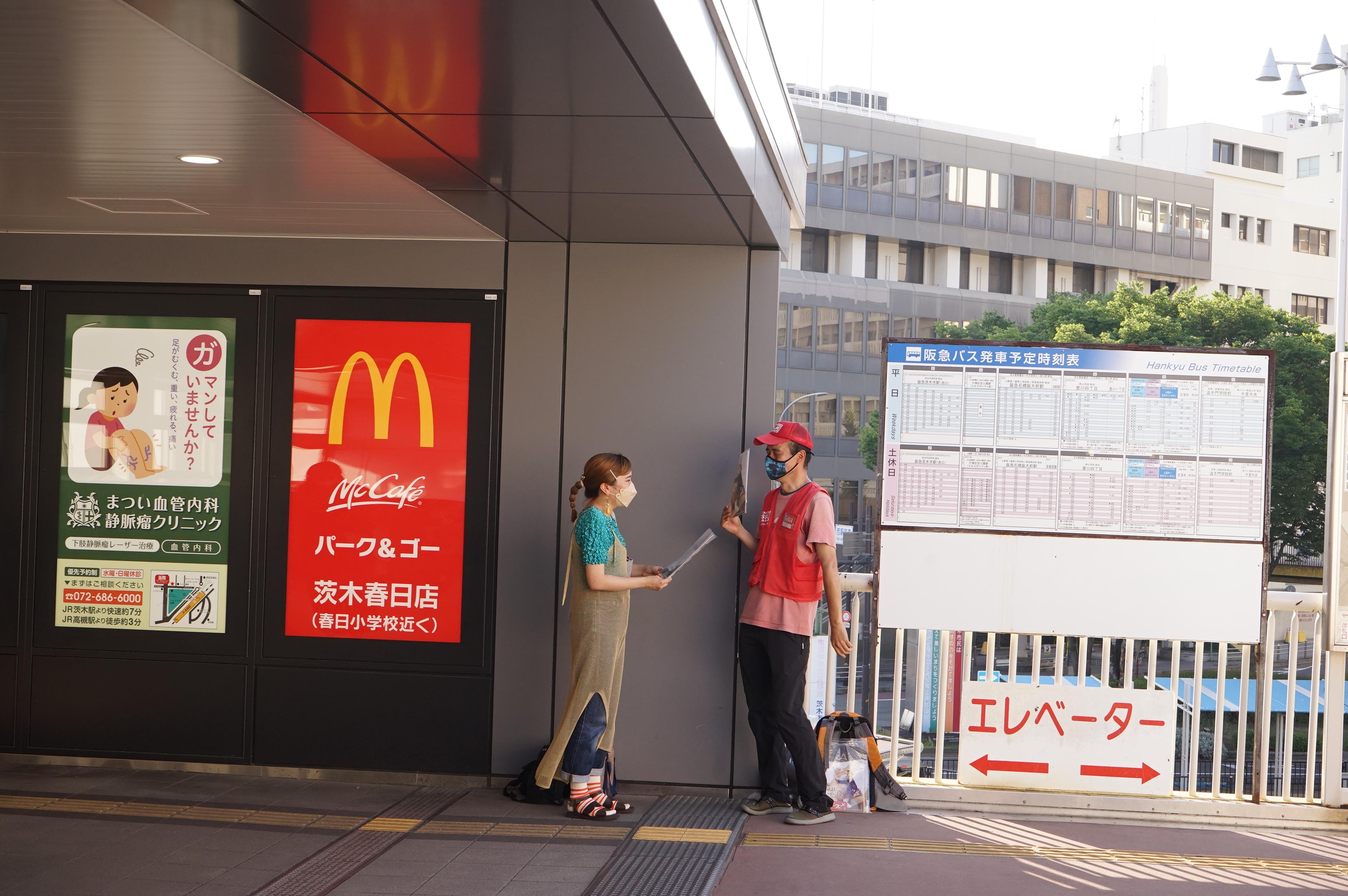
Selling near the west exit of Osaka's JR Ibaraki Station. Credit: Yoshihiro Kinoshita
“Simply being told ‘Thank you’ after handing customers the magazines of course makes me happy, but the way customers buy the magazine is very courteous. They don’t make it seem like they are buying for charity or out of pity, they just casually come by, wish me ‘good luck’ or ‘a good day’, and naturally walk away. It’s as if they are saying ‘this is your job, and I am receiving an important service from you’, and this ‘win-win’ dynamic is what I enjoy about this job. This dynamic is an inevitable part of doing business, but was nonetheless refreshing to me.”
Around 80 per cent of his customers are women who often converse with him, sometimes for one or two hours. He also has customers like preschoolers who would run up to greet him, young ladies who would write him small letters, and even a foreign man who he gets along well with and went hiking with on one occasion. He finds it mind-boggling that just by standing in front of the station he is able to meet so many different people that he had never interacted with before and now finds the fun in the experience.
“I had thought to myself in the past that when I became homeless I would be like a monk and cut all ties with my family and friends to be completely alone, but unexpectedly I found my ‘temple’ — The Big Issue Japan — and it felt like I found my reason to live again. Conversations with customers are diverse and can range from small talk to deep discussions about work and families, but there’s so much I learn from them. So, in hindsight, I’m grateful to my past self for not being able to move and go to work. If I had continued working as I had before, I might have a lot of money, but I wouldn’t have had the opportunity to see this part of the world.”
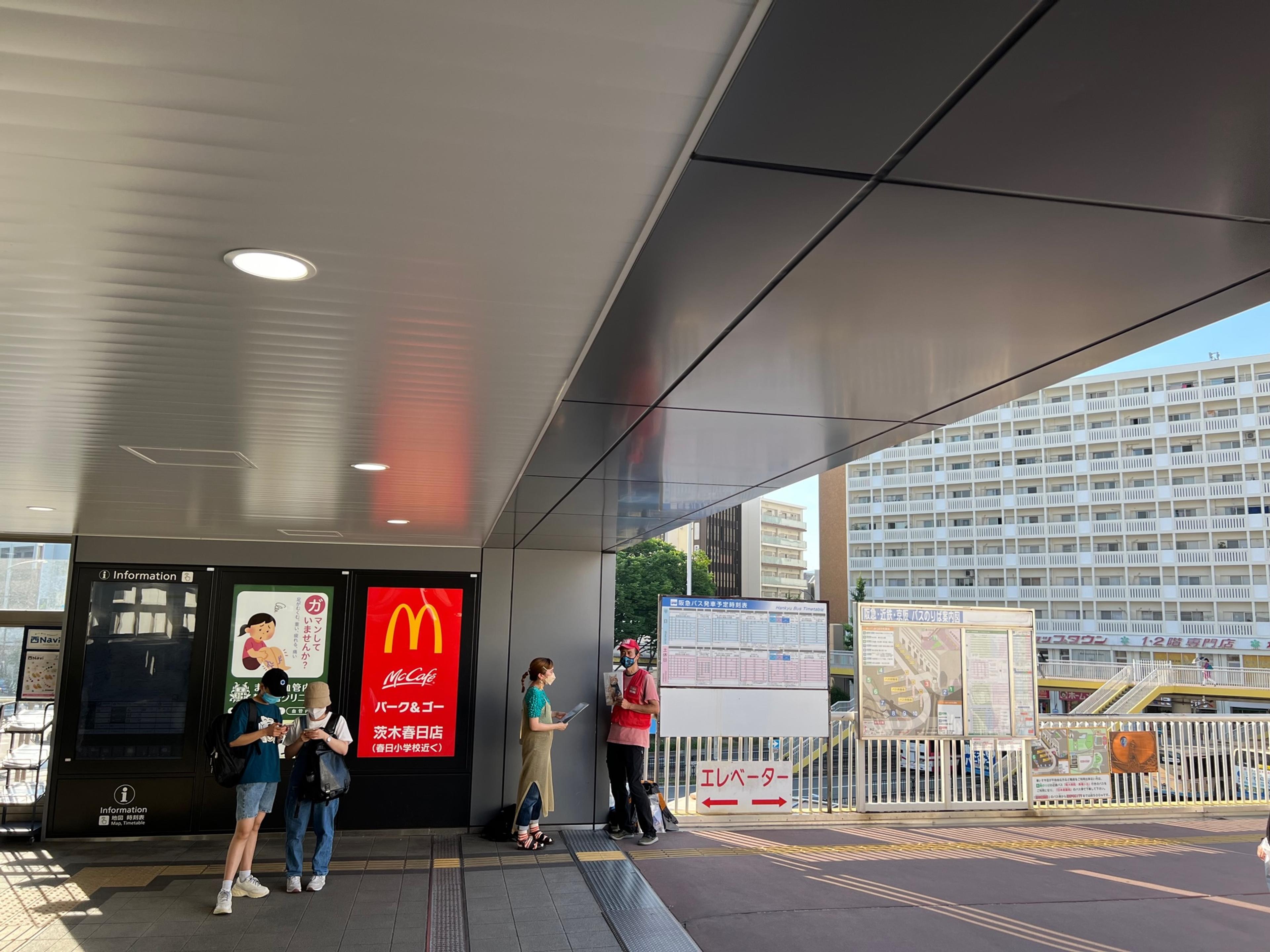
Selling near the west exit of Osaka's JR Ibaraki Station. Credit: Yoshihiro Kinoshita
I had thought to myself in the past that when I became homeless I would be like a monk and cut all ties with my family and friends to be completely alone, but unexpectedly I found my ‘temple’ — The Big Issue Japan — and it felt like I found my reason to live again.
Moreover, Mr Ueda also actively participates in school lectures that The Big Issue Japan holds for students, and uses this platform to share his experiences. By candidly talking about his story, he hopes to spread the significance of human interaction and the importance of choosing your own life path for yourself without being swayed by others’ opinions.
Although he is currently living in ‘Step House1’, a housing system that offers low rent prices to support financial and social independence, his one-year contract is about to end. While he is thinking about finding another job, he wants to continue working at The Big Issue Japan for the near future.
“When I was a child, I used to be the type to enjoy playing and studying alone, and often found myself shouting at my parents, teachers, and friends: ‘Don't bother me!’ So when I got a job in adulthood, I became the typical overworking businessman. But now, through The Big Issue Japan, I have finally learned to enjoy interacting with others.”
“I’ve had a variety of experiences in my life, but for now I’m hoping I can continue to learn more from where I currently am.”
Since this interview, Mr Ueda has moved on from being a street paper vendor and into the next stage of his life.
